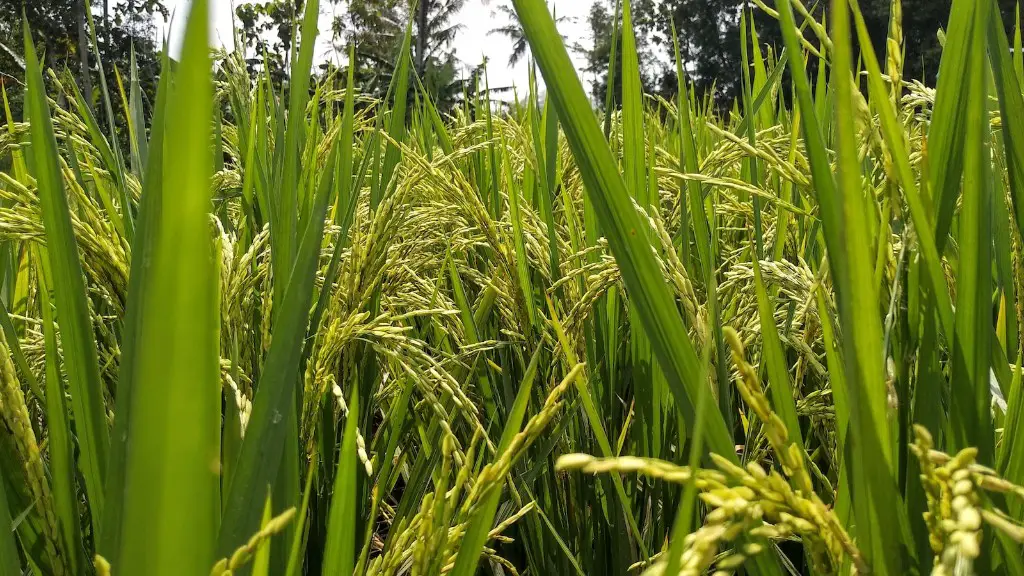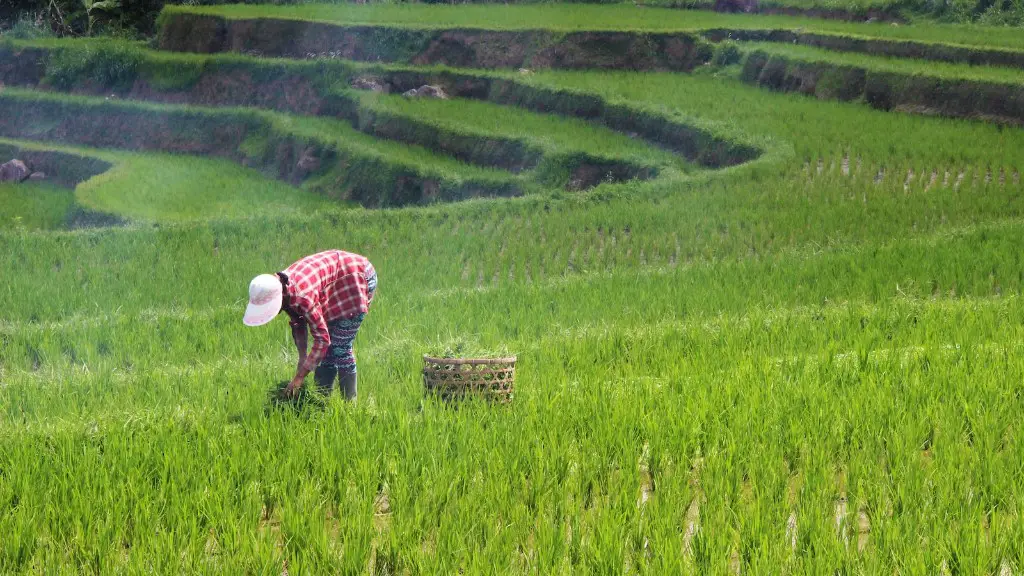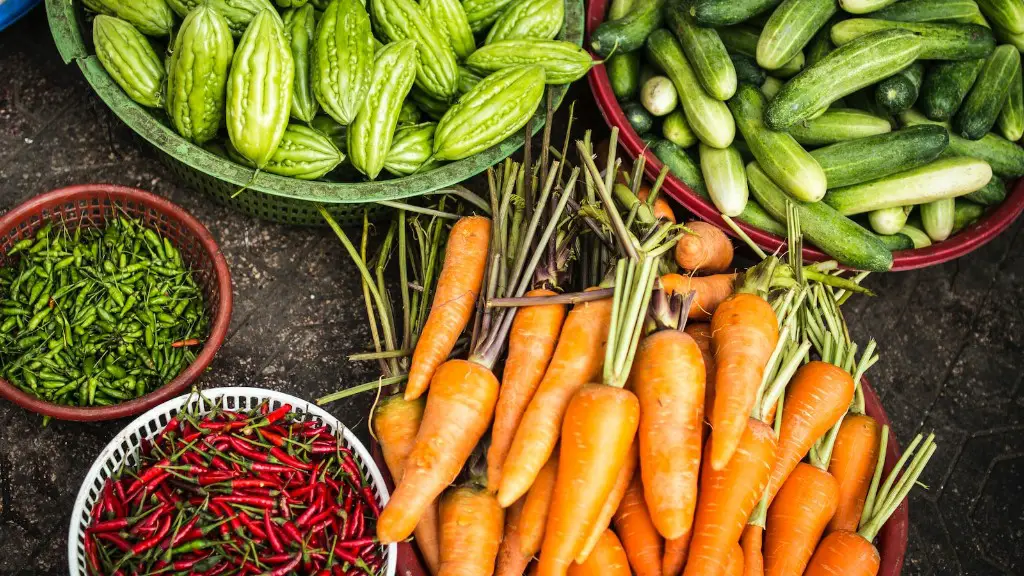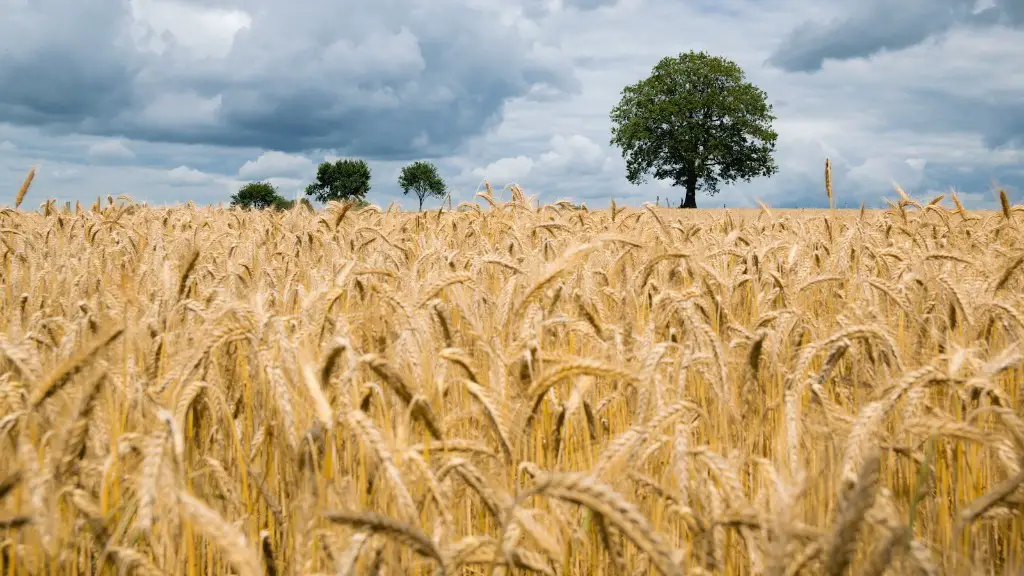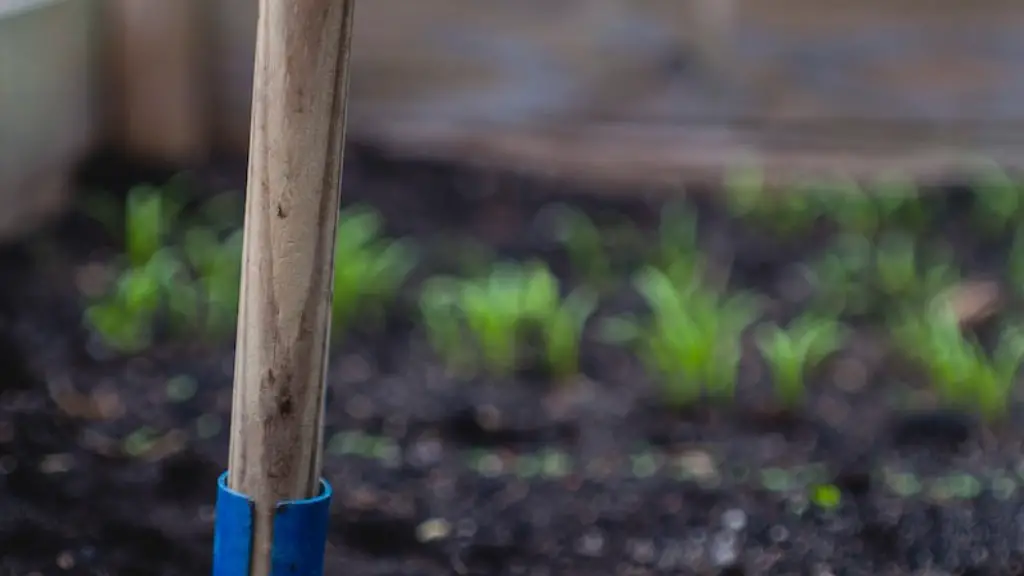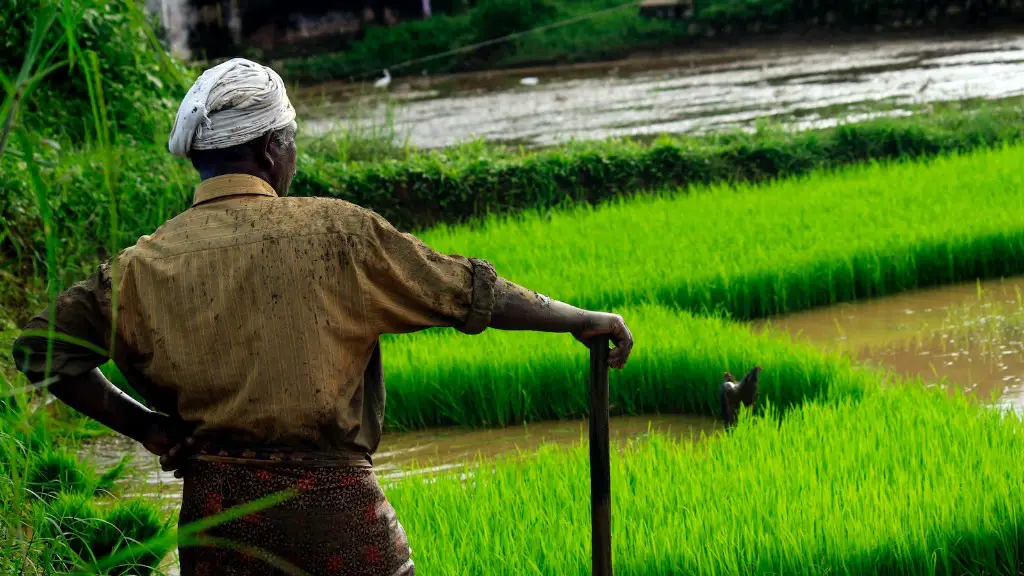There are a number of reasons why conventional agriculture is not sustainable. For one, it relies heavily on fossil fuels, which are finite resources. It also pollutes the air, water, and soil, and contributes to climate change. Additionally, it is often very water-intensive, which can lead to water scarcity. Finally, it can have negative impacts on biodiversity and the environment more generally.
There are many reasons why conventional agriculture is not sustainable. First, it is highly dependent on fossil fuels, which are a finite resource. Second, it often uses synthetic chemicals, which can pollute the environment. Third, it can lead to soil erosion and loss of topsoil. Fourth, it often requires more water than natural systems can provide. Finally, it can have negative impacts on biodiversity.
What are the disadvantages of conventional farming?
Organic farming is a more sustainable and environmentally friendly option than conventional agriculture. It has a smaller carbon footprint, conserves and builds soil health, replenishes natural ecosystems for cleaner water and air, all without toxic pesticide residues. Organic farming is also better for human health, as it does not expose people to toxic chemicals.
In addition, the production of food takes up a lot of water, which can lead to water scarcity in areas where agriculture is the main water user.
Soil erosion – the loss of topsoil can lead to lower crop yields, as well as soil contamination and loss of fertility.
Biodiversity loss – the conversion of natural habitats to farmland can lead to the loss of plant and animal species.
Air pollution – emissions from agricultural activities, such as livestock and fertilizer production, can contribute to air pollution.
Climate change – agriculture is a major contributor to greenhouse gas emissions, which cause climate change.
Why is agriculture not sustainable
Pesticides, fertilizers and other toxic farm chemicals can poison fresh water, marine ecosystems, air and soil. They also can remain in the environment for generations. Many pesticides are suspected of disrupting the hormonal systems of people and wildlife. Fertilizer run-off impacts waterways and coral reefs.
Sustainable agriculture is a type of agriculture that focuses on producing long-term crops and livestock while protecting the environment. Sustainable agriculture relies on natural processes to provide inputs and recycle nutrients on-site, eliminating the need for non-renewable resources. In contrast, conventional agriculture requires a large amount of energy to produce, prepare, and transport food.
Is conventional farming unhealthy?
It is important to be aware of the potential damage that conventional farming practices can have on the production of vitamins, minerals, proteins, and phytonutrients in fruits and vegetables. Pesticide residues can also contaminate food, so it is important to be aware of these potential risks when choosing what to eat.
Traditional farming methods are becoming increasingly inaccessible to the greater public. This is due to a number of factors, including urbanization, deforestation, lack of space, and water shortages around the world. As traditional farming methods become less viable, it poses a serious risk to the environment.
What is the problem with conventional agriculture?
Conventional farming methods have been heavily criticized in recent years for causing a number of negative environmental impacts, including biodiversity loss, soil erosion, and increased water pollution. These impacts are largely due to the rampant usage of synthetic fertilizers and pesticides in conventional farming operations. In light of these concerns, many farmers are now seeking out more sustainable and environmentally friendly farming practices.
Monoculture farming is a type of farming where a single crop is grown in large quantities on a single piece of land. This type of farming can directly impair the land, reducing the amount of water and nutrients the soil can retain. This can lead to situations like the Dust Bowl, where large areas of land become severely degraded and unusable. Monoculture farming is therefore not sustainable in the long term, and can have a negative impact on the environment.
What are the current concerns about conventional agriculture
The overuse of surface and ground water for farming purposes has led to water scarcity in many parts of the world. Conventional farming uses approximately 70 percent of our fresh water supply, yet pesticides and nitrogen fertilizers often leach into the soil and pollute the groundwater, rivers, lakes, and oceans. This pollution can have devastating effects on local ecosystems and the quality of our drinking water. To reduce the impact of farming on water resources, we need to find more efficient and sustainable ways to produce our food.
using agricultural chemicals can have long-term negative effects on both the environment and human health. Although they may be necessary for farmers to use in order to produce crops, the overuse of these chemicals can lead to serious problems. runoff from farms can pollute water bodies and destroy important ecosystems, while chemicals can also linger in the soil and be taken up by plants that are then consumed by people and animals. In order to protect both the environment and human health, it is important to use agricultural chemicals sparingly and only when absolutely necessary.
What are the biggest challenges to sustainability in agriculture?
With the world’s population continuing to grow, one of the main challenges sustainable farmers face is producing enough food to meet demand. This is compounded by the fact that usable land is being lost to development and climate change is making some areas more difficult to farm. Additionally, sustainable farming practices can be more costly and energy-intensive than traditional methods, making them less feasible for many farmers.
It is estimated that food production accounts for over a quarter of the world’s greenhouse gas emissions. This is a staggering amount, and it is only increasing as the world’s population grows. Unfortunately, many modern farming practices are unsustainable and are taking a toll on our environment. This is a major problem that needs to be addressed urgently.
Why is organic farming better than conventional farming
Organic farming practices are designed to help protect the environment by reducing pollution and conserving resources like water and soil. They avoid using synthetic pesticides, which can harm wildlife, and strive to preserve biodiversity and local ecosystems. By following these guidelines, organic farmers can help make a difference for the planet.
Modern conventional farming methods include excessive use of chemicals and planting only one crop multiple times (monocropping). This has led to a decline in soil fertility, and an increase in salinity and blue-green algae in waterways over many years.
How is organic farming more sustainable than conventional farming?
Organic farms are a more sustainable option for agriculture, and have numerous benefits over conventional farms. They tend to have more fertile soil, use less energy, and sequester more carbon. Additionally, organic farms support more biodiversity.
Smallholder farmers in many parts of the world are increasingly resorting to cutting down nearby forests in search of new fertile land, as the productivity of their land degrade due to conventional farming methods. This is a major problem as it not only contributes to deforestation, but also reduces the amount of productive land available for farming, further exacerbating the problems of land degradation and food insecurity. It is essential that we find more sustainable ways of farming that do not degrade land, and that we support smallholder farmers in adopting these methods.
What are the disadvantages of conventional tillage
Tillage is the process of plowing, hoeing, and other forms of soil disturbance. It is a crucial element of agriculture, as it controls weeds and prepares the soil for planting. However, tillage can also lead to significant soil loss and degradation.
There is evidence that conventional farms operating on the demand for large yields are not seen as valuable resource reservoirs by bees and cause reduced visitation and pollination. This is likely because bees are drawn to other, more attractive resource pools. As a result, it is important for farmers to make their farms more attractive to bees in order to ensure pollination and high yields.
Final Words
There are a number of reasons why conventional agriculture is not sustainable. First, it is typically very reliant on fossil fuels, both for the production of synthetic fertilizers and pesticides, and for farming equipment. Second, it can be very water intensive, both in terms of the irrigation of crops and the livestock. Third, it can lead to soil erosion and degradation, due to the fact that it often involves intensive tilling and mono-cropping. Finally, it can have negative impacts on biodiversity, both in terms of the loss of wild habitats and the decline of pollinators.
The current model of conventional agriculture is not sustainable in the long term. It is based on an industrial model that is resource intensive and damaging to the environment. The increased demand for food production, coupled with the detrimental effects of climate change, means that this model is not viable in the long term. The good news is that there are alternative models of agriculture that are more sustainable and that can be adapted to meet the needs of a changing climate.
